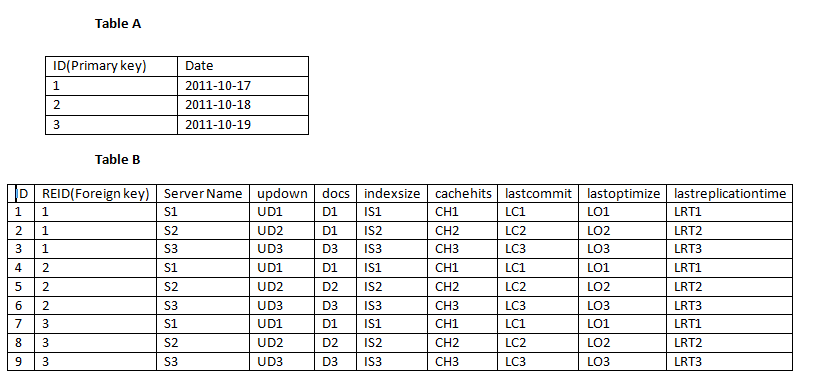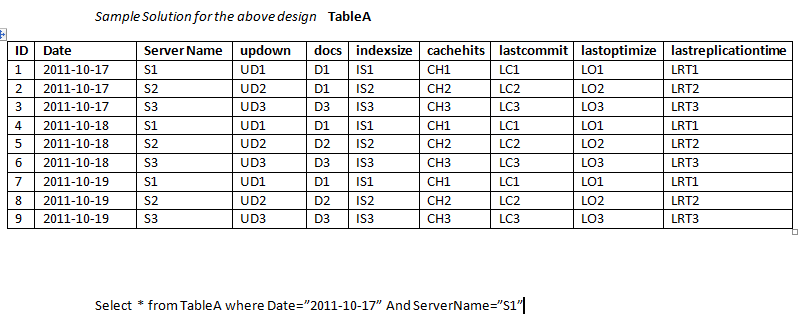如何以可扩展的方式表示该数据模型
我想要与特定日期相对应的每个服务器名称的以下所有信息 就像今天的日期一样,我们必须获取每个服务器(服务器名称)的以下信息,假设如果我们有 3 台服务器,那么我们需要所有 3 台服务器今天的日期的以下信息。以同样的方式,对于明天的所有 3Server,我需要与该特定日期相对应的所有以下信息。我该如何表示这个模型。
这些是列名称,
updown
docs
indexsize
cachehits
lastcommit
lastoptimize
lastreplicationtime
presentqueries
slowqueries
totalqueries
所以我认为它是一对多关系模型。其中 one 表示日期,Many 表示服务器名称。我设计的样品表..!!

基于 Larsenal 更新的示例解决方案
I want all the below information for Each ServerName Corresponding to particular date
Like For Todays Date we have to get the below information for each Server(Server Name) suppose if we have 3 servers then we need the below information for todays date for all the 3 servers. In the same way for tomorrow for all the 3Servers I need all this below information corresponding to that particular date. How can I represent this model.
These are the column names
updown
docs
indexsize
cachehits
lastcommit
lastoptimize
lastreplicationtime
presentqueries
slowqueries
totalqueries
So I think it is One to Many relationship model. With one as date and Many means server name. Sample table that I have designed..!!

Sample Solution based on Larsenal Update

如果你对这篇内容有疑问,欢迎到本站社区发帖提问 参与讨论,获取更多帮助,或者扫码二维码加入 Web 技术交流群。

绑定邮箱获取回复消息
由于您还没有绑定你的真实邮箱,如果其他用户或者作者回复了您的评论,将不能在第一时间通知您!

发布评论
评论(1)
从您在这里显示的内容来看,我认为没有令人信服的理由需要单独列出日期表格。
根据您提供的信息,我只需将日期列添加到您的主表中。在您的消费者代码中,您可以轻松地创建类似以下内容的内容:
生成类似于以下内容的 SQL
From what you show here, I see no compelling reason to have a separate table with the dates.
Given the information you provided, I'd just add the date column to your primary table. In your consumer code, you can easily create something along the lines of:
That generates SQL similar to